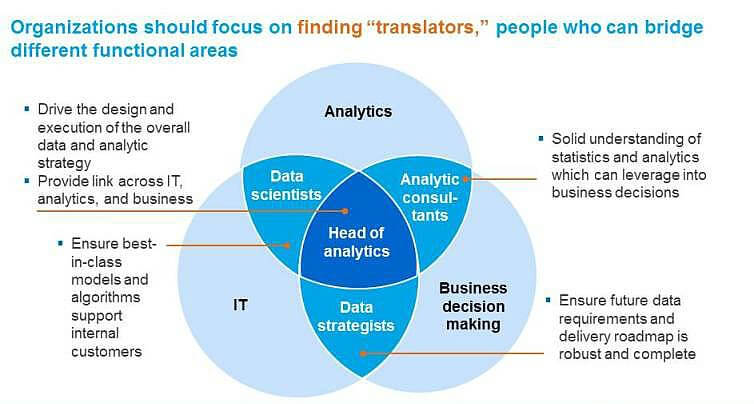Decoding Data: A Career in Big Data Analytics

Img source: The Economist Group
There is a lot of buzz around a career in big data in the recent times. This is a field where the demand for professionals is huge, the talent available currently not adequate and hence the compensation offered on the higher side. A career in big data is definitely one of the most promising careers we will be seeing in the coming years.
Understanding Big Data Analytics:
Big data is a phrase used to define massive volumes of structured and unstructured data characterized by 3 Vs, Volume, Variety and Velocity. For these reasons, it cannot be processed using traditional data management tools and software. However, such data has the potential to give companies valuable insights and information when processed. Analyzing big data can help companies uncover hidden trends, market patterns and customer preferences. Equipped with these findings, a company can engage in more effective marketing, improve customer service, open up new business opportunities and hence edge out rival companies in business. Future business decisions are often based on findings from big data and such decisions can make or break a company. Analyzing such data requires specialized software tools and advanced analytical tools. On the manpower side, it needs specialized professionals.
The Demand for Big Data Analytics Professionals:
Being a relatively new field, there are not enough big data professionals in the country, while the demand is rising at a very fast pace because a lot of big data work is outsourced to India. A survey by Gartner in 2013 predicted that by 2015, 4.4 million jobs would be created globally in the big data industry and only a third of that would be filled. With big data in India still at a nascent stage and with a potential to grow rapidly, the talent shortage in India is acute. Consider this fact that emerged from the Big Data and Analytics Summit by The National Association of Software and Services Companies (NASSCOM) in 2014. India then had just about 10,000- 15,000 big data analysts and data experts, with an expected shortage of two lakh data scientists in the country over the next few years.
Career opportunities for Big Data Analytics Professionals:
Most of the big data jobs in the country are in Bangalore, though job prospects are also spreading to other cities which have a strong IT base. Top IT companies like Oracle, Capgemini, Infosys, TCS and Cognizant all have big data divisions for which they hire data analysts.
Job Roles for Big Data Analytics Professionals:
Typically you start your career as a data analyst. In this role you are expected to use available tools to analyze data. A data scientist on the other hand is a more specialized professional and comes with the ability to tackle data with higher volume and velocity. Not only can he analyze data, he can also devise algorithms to solve complex data problems. On the other hand, there is the role of data engineers who come with an engineering background. Their role is not to analyze data but to build systems and processes which help data analysts and scientists to mine data.
Where to study Big Data Analytics:
Data analytics courses are on offer in premium management institutes in the country like Indian School of Business, Hyderabad and the Indian Institute of Management ( IIMs) of Kolkata, Bangalore and Lucknow. To bridge the demand-supply gap of analytics professionals, many standalone institutes like the Jigsaw Academy, AnalytixLabs, Analytics Training Institute and UReach Solutions also offer training in analytics. These institutes provide a wide range of training programs on various aspects of data science.
Salary standards for Big Data Analytics Jobs:
Salaries in this domain have shot up in the last few years. Fresher salaries start from Rs 6 lakh per annum going up to 12 lakh per annum for premium colleges. A senior business analyst with 3-5 years under his belt would be getting a salary between Rs 8 lakh and Rs 14 lakh per annum while a team leader with 10 years experience can earn as much as Rs 20 lakh per annum. The growth in salaries is also among the top in the industry. Currently, the average annual hike in big data salaries is 50 per cent higher than those of the IT industry and this trend is expected to continue.
Apart from the knowledge of data mining tools and a good grip of statistical and mathematical concepts, a data analyst also requires statistical and quantitative analytical skills. He should also be good at data visualization and have a creative and problem solving mindset. If you have the above skills, a career in big data is for you.
[supsystic-social-sharing id="1"]
